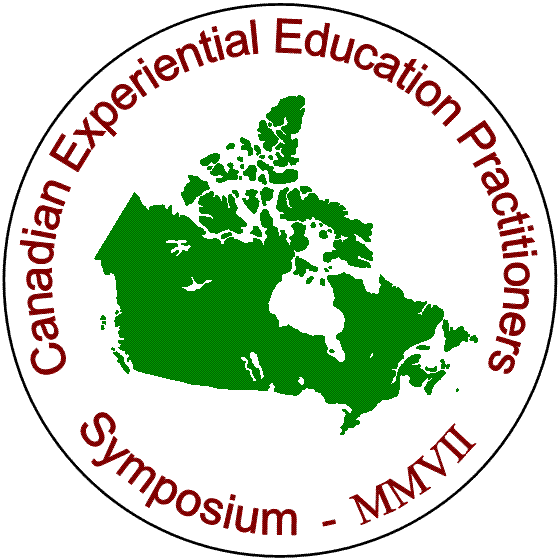
April 13 - 15, 2007
(Bark Lake Leadership Centre, Haliburton, ON)

Updated: January 30, 2007

April 13 - 15, 2007 |
 Updated: January 30, 2007 |
     > >   |
|
|
Like most other conferences, we gather up some of
the best people in the industry to prepare presentations. | |
|
Invited experts are not the only people who can present. | |
|
Most importantly, any participant can specifically request a session on any topic. | |
|
You don't have to present or request. You may have enough challenge simply deciding which sessions to attend! |
It may sound chaotic - in fact the results are anything but.
Virtual Space provides the rules and structure to bring it all
together beautifully, as it has for us successfully every year.
Every participant is responsible for their own learning, and if they ask
for what they need, the expertise will come forward. Trust us, it
really works.
COMPARE! Click here to compare a V-Space conference to the more traditional workshop conferences, and to learn why Virtual Space is so much more powerful and effective. Or read the comments from people like yourself who experienced V-Space in our past years: 2003, 2004, 2005, and 2006.
(Full credit for the original concept of this kind of conference goes to Ward Flynn and Tom Leahy of Boulder, Colorado. 2007 will be the 15th year of Tom's National Challenge Course Practitioners Symposium - which was the original model and inspiration for this Canadian version.)
V-Space workshops are about 50 (or 110) minutes long and come in 3 flavours:
Prepared Workshop - delivered by an attendee with some expertise in a particular subject and prepared ahead of time
Presentation - again delivered by a 'knowledgeable colleague', less polished, usually in response to a need being expressed by other attendees
Discussion - facilitated by attendees to share experiences or discuss issues
Before they arrive, participants are asked to consider what learning they are seeking from the symposium, or what knowledge they might be willing to present in a session. Most of the sessions are then announced, requested, and created by all of the attendees at our V-Space kick off session. In real time, as this is happening, the session titles are written up on our whiteboard Session Grid of places and times. The presenter(s) or facilitator(s) of each session give a brief overview of the topic. Once there are no more sessions to announce, the participants are ready to select their own learning path from the available offerings.
You know the old clichι: "You get out what you put in." Well they really mean it with Virtual Space. Every participant is fully responsible for their own professional development. If there is no session being offered on the topic you really need covered, it is your responsibility to ask for it. It is exciting to see the amazement on the face of a participant who bites the bullet, stands up seeking information, and inspires a fellow practitioner to step forward and volunteer their relevant expertise, as I saw happen to great effect in February, 2003. (Those sessions are usually the most highly attended too - any surprise?)
Before each group of V-Space sessions, we will gather and the presenters will review their topic for everyone and then it's off to the workshops!
If a particular session is not meeting your needs, you are encouraged to move at any time to another one that does (known as the "Law of Two Feet"). This is yet another difference from most conferences. Here again, each individual is responsible for managing their own learning. Presenters will expect that in such an informal setting, participants have to make conscious choices to get the best possible value from a limited number of sessions.
We typically have seven to nine 1-hour V-Space time slots over the whole conference. Any given session may have anywhere from 2 to 4 concurrent workshops - we don't actually know until the Saturday morning launch! Risky? Perhaps. Exciting and vital? You bet! It works unbelievably well in Colorado, and it has worked for us every single year.
Read about the history of Open Space and V-Space
Nearly everyone who has experienced a V-Space based symposium claims that it was the most valuable conference they have ever attended, and they always come back. Only you can guarantee similar results in April. Bring an open mind and a desire to learn, and you will leave a richer person. Bring your experiences and a desire to share, and you will enrich the minds of many others.
Start thinking now what you would like to see presented or discussed in a workshop. If you have a particular topic, experiential model, activity, or best practice that you would like to share with others, why not consider presenting a workshop yourself. You might not consider yourself an expert (even better), but the other participants will want to hear about your experiences as much as you want to hear about theirs. Perhaps you would like to try out a new activity concept before offering it to one of your client groups. You have questions that you need answered, or an issue that should be aired with industry colleagues. Or maybe this is simply a long overdue opportunity to spend a little time back in the participant shoes, hanging off a ropes course element. This conference has the flexibility and human resources to make it happen.
Still have questions? Perhaps you'll find the answer by clicking here, or check out the links at the top of this page.
Contents (c) Copyright 2002, Andrew Welch.